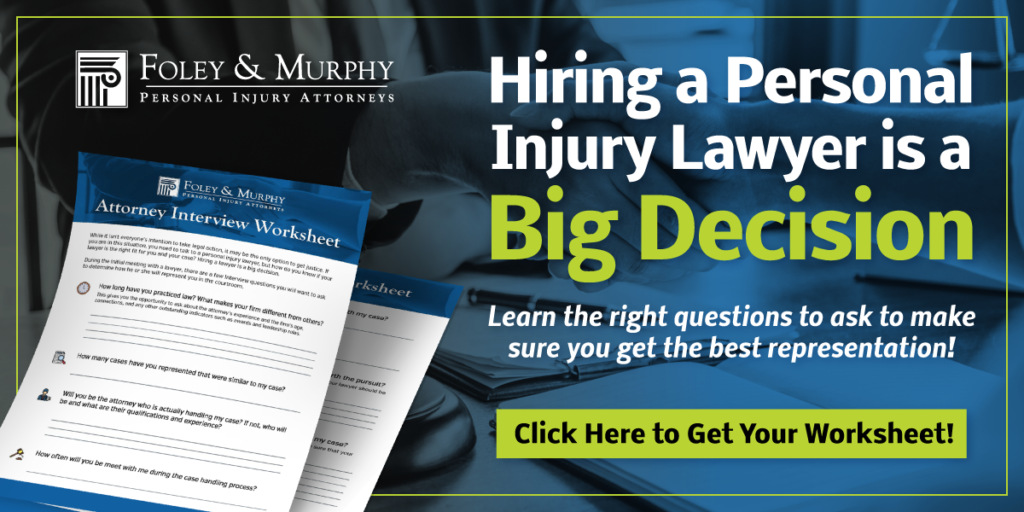Whenever we make a purchase, we expect manufacturers to create products that are safe for consumers, unfortunately, that is not always the case. Accidents can happen with almost any product: products can break, be defective, or have a malfunction that could easily cause an injury. Product liability law is a way to make manufacturers, distributors, and retailers maintain certain standards to protect and keep consumers safe by preventing them from injury or harm.
Need a Personal Injury Lawyer but Aren’t Sure Where to Start?
>> Click Here to Get Started <<
What is Product Liability Law?
Product liability law is a type of personal injury law that gives consumers a legal course of action if they are injured due to a dangerous product. It refers to a lawsuit brought by a consumer against anyone in the chain of production including manufacturers, distributors, and retailers who knew or should have known that the product was defective. The goal of product liability law is to protect consumers from defective products.
Three Types of Product Defects
1. Design Defects
Liability arises when a product has a design defect, this means that it was designed in a way that led to the injury of the consumer. If these defects make it unreasonably dangerous and cause injury to the consumer, then it may be appropriate for the injured consumer to file a product liability lawsuit.
2. Manufacturing Defects
Manufacturing defects occur during the production and construction phases. Nobody expects to buy a product and use it, only to discover that it does not work properly. One example would be a faulty airbag which fails to properly deploy because of an unsatisfactory mechanism. The two most common manufacturing defects are (1) inferior quality materials and (2) faulty workmanship while processing and assembling components of the final product. Product liability law arises when manufacturing defects cause an injury.
3. Warning Defects
Warning defects are when the manufacturer fails to provide the consumer with adequate instructions about the proper use of the item or warning of potential risks including existing hazards, effects of the hazard, the severity of the risk, and how to avoid the hazard.
Product Liability Theory
A design or manufacturing defect can cause someone serious harm. An injured plaintiff may file a claim under one or more theories of liabilities: strict product liability, negligence, and breach of warranty.
Strict Liability
Strict liability is a legal theory under which defective product claims are often brought. A manufacturer, distributor, or retailer can be held strictly liable for harming a person caused by a product that is unreasonably dangerous.
Under strict product liability, the plaintiff must establish:
- The product was defective
- The defect directly caused the injury
- Suffered losses or damages due to the injury
Negligence
When manufacturers, distributors, suppliers, retailers, and other parties involved in a manufacturing product chain of distribution fail to exercise reasonable care that results in an injury, they acted negligently. This could include careless mistakes, design errors, and failure to warn consumers of the risks associated with the product.
Under the negligence theory of liability, the plaintiff must establish:
- The party at fault must create a duty of care to the plaintiff
- The manufacturer breached its duty to the plaintiff
- The actual and proximate causes of the injury
- Suffered losses or damages
Breach of Warranty
A warranty is a promise by the manufacturer or retailer to its customer that if the product becomes defective during a predefined period of time, they will repair it. The party is obligated to keep their promise if their product turns out to be defective.
Under the breach of warranty, the plaintiff must prove:
- The warranty existed at the time of purchase
- The defective product renders it unfit for the purpose intended
- They did not cause the defect by misusing the product.
Contact Foley & Small
Any party that fails to uphold its duty to the customer must be held liable for dangerous and defective products on the market. The purpose of product liability law is to prevent harm and injury to consumers.
If a defective product has harmed you or a family member, our team can help you. We encourage you to contact us today if you have any questions.









